The Manic Pixie Dream Girl: Trope Or Mythos?
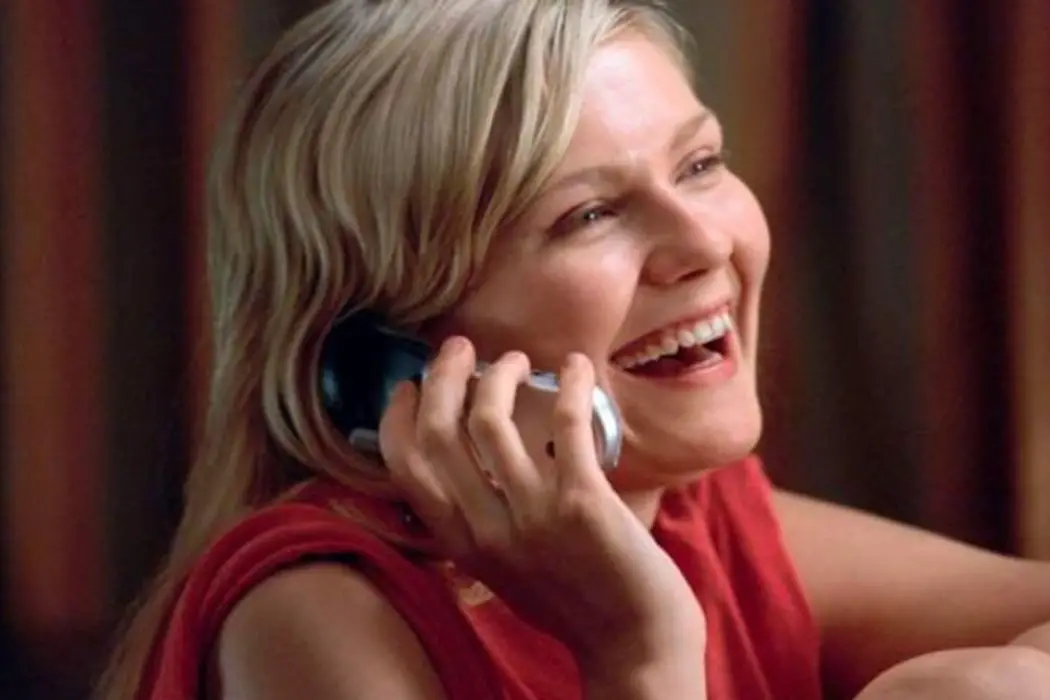
Lee is a filmmaker and writer, currently juggling university and…
It sometimes seems the term ‘manic pixie dream girl’ is tossed around more often than a female character who might actually be well-written. Every time a story features a girl with alternative interests, various strengths, or the ability to trump her male colleagues, someone will be foaming at the mouth as they accuse her of the crime of adhering to a tired fanfiction trope.
However, it’s interesting to see the number of characters subjected to this criticism when, in actuality, they have well-rounded, dynamic personalities. Yes, at times, there are characters written with flat development and the ability to be, well, perfect. But it’s interesting to not only see how overused the manic pixie dream girl label is, especially when there are many male characters who are also ‘perfect’, but never given the same critique (Batman, anyone?).
Breaking it Down
According to film critic Nathan Rabin, who came up with the term after watching Kirsten Dunst’s character in Elizabethtown, a manic pixie dream girl is a female character who “exists solely in the fevered imaginations of sensitive writer-directors to teach broodingly soulful young men to embrace life and its infinite mysteries and adventures”.
It’s helpful to look at the definition in a multifaceted manner. While, on one hand, Rabin specifically assigns this trope to female characters only (despite characters of all genders being able to fall under this umbrella). He also acknowledges this fantasy girl is a product of misguided ‘auteurs’, who seem to be under the impression that a young man, down on his luck, only needs a quirky heroine to turn his life around.
At the end of the day, this term did originate from the fact that, well, men often suck at writing complex female characters, and think that assigning an eclectic music taste or fun hair will make up for a lack of actual depth.
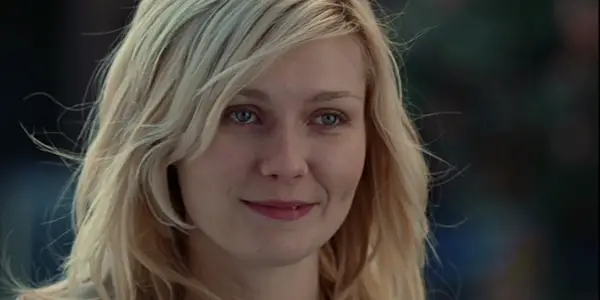
So we know what a MPDG is: a female character given random ‘quirky’ traits to cover up the fact that she has no personality or motivations besides making the protagonist’s life more interesting. They are two-dimensional and evidence of extremely sloppy writing; nothing more than the fantasy of a misguided writer.
However, somewhere along the way, the true meaning of the trope faded into obscurity and made way for misogynistic Twitter users ready to accuse any female character of the horrific crime of being, well, too perfect. The irony in this being the fact that most of the martyred characters subjected to this trope are actually well-written and interesting, and the fact that their writing can be overlooked often just proves an oversight on the audience’s part, often stemming from a sexist root.
You Have Fun Hair; Save Me from Myself?
The biggest downside of the trope’s modern prevalence has been the readiness with which viewers accuse any off-beat character of being a MPDG. While there is definitely something dehumanizing-ly wrong about assigning women to carefully constructed boxes of pre-set traits, the fact of the matter is that most characters don’t even fit the trope. Of course, there are many female characters out there who lack depth due to subpar writing. Claire (Kirsten Dunst) from Elizabethtown is a good example, as is Sam (Natalie Portman) from Garden State. However, their MPDG-ness does not come from their personalities, but from their lack of story.
There is nothing wrong with liking The Shins or drawing weird maps. Having a unique hair colour or eclectic taste in style does not subject you to a boxed out personality, and it is very possible to create well-written characters with these characteristics. The problem with characters like Claire and Sam, on the other hand, is the fact they are a fantasy. Neither character has her own story or motivations; in fact, the story seems to thrive off their mysteriousness. It is this very intrigue that draws in the (boring) male protagonist, who then uses her personality as an inspiration to live his life. That’s it. Roll credits.
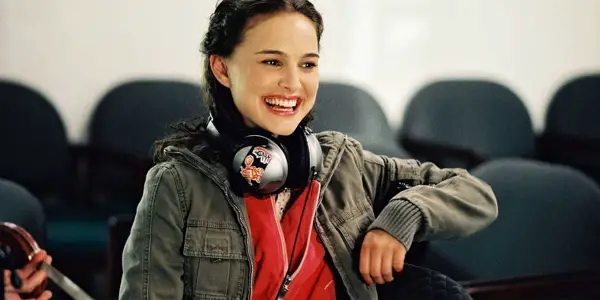
This type of character is dangerous because it perpetuates the idea that a woman’s story should be centered around a man. Women do not exist to give men purpose; in fact, characters like Sam and Claire are usually simply existing as they wish to be. However, by denying the audience any real insight into their lives and personalities, the audience is forced to see them as a two-dimensional plot point in the protagonist’s life.
It takes away their humanity and leaves a colourful facade in its wake. Not to mention, this trope can carry its way into reality as well. The last thing the world needs is people romanticizing every girl with alternative interests as a gateway drug to their Real Future.
The sexism in this trope is more prevalent when one looks at how it is limited to women. Although this was an oversight on Rabin’s part, many use this to further their misogyny against any strong female character they come across. But there are some who have cited specific male characters as being, you guessed it, Manic Pixie Dream Boys. It’s 2019; anyone can be a misconstrued caricature if they wish!
However, there is something to be said about how certain male characters, such as Ferris Bueller (Matthew Broderick) and Jack Dawson (Leonardo DiCaprio) are allowed to be as flighty and quirky as they want without criticism. Both characters exist to make the lives of other characters, Cameron Frye (Alan Ruck) and Rose Bukater (Kate Winslet), respectively, more interesting.
Their counterparts seem content with the humdrum of everyday life until they appear to show them the beauty of the world! They, too, have little to no story outside being “weird”. Yet they are hardly ever featured on MPDG lists, as one of the most problematic aspects of the trope itself is its limitation to women, further perpetuating baseless misogyny. However, as Ferris and Jack prove, anyone can fall under this umbrella.
You’re a Manic Pixie Dream Girl! And You! Oh, and You, Too!
Another issue with this trope is people’s tendency to assign it completely willy-nilly, even in situations where the character in question is anything but a MPDG. In fact, some of the most commonly accused amongst the MPDGs include characters like Summer (Zooey Deschanel) from 500 Days of Summer, Margo (Cara Delevingne) of Paper Towns fame, and Eternal Sunshine of the Spotless Mind’s Clementine (Kate Winslet).
The irony with these characters is that they are actually a response to the trope itself, and they all have their own storylines, motivations, and personalities but, in most of these cases, the male protagonist sees them as an escape, and has to slowly learn that they are, in fact, people.
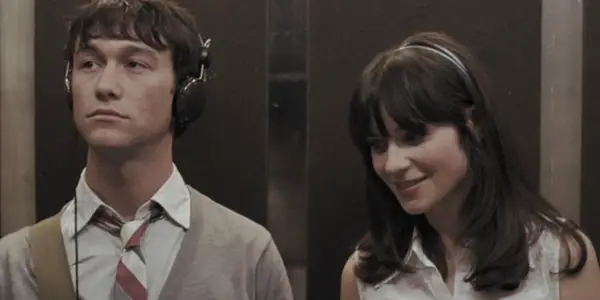
Summer and Margo, more specifically, are direct inversions of the trope. Their respective male protagonists are unwittingly dull and bored with their lives, albeit well-meaning. Thus, they turn to Summer and Margo’s eclectic interests and mystique as a way to escape their reality. Both films, however, drop blatant hints that these young women do not want to be subjected to this pressure. Margo has run away altogether and wants to escape her town entirely.
Even though she regards Quentin (Nat Wolff) as a friend, she never tells him she wants to be found, or that she intends to change his life. Similarly, Tom (Joseph Gordon-Levitt) sees Summer as the quirky solution to his life’s problems, which leads to him completely ignoring her when she constantly tells him she is not interested in dating him. His reading between lines that do not exist is what ultimately lead to his heartbreak, when he finds out that Summer has been clear about her wants from the beginning, and that they didn’t include him, even beneath the layers.
Both films involve the male protagonist making assumptions, and seeing Margo and Summer as tools for their own gain. While Quentin seems to realize his mistake towards the film’s end, Tom meets a girl after his relationship with Summer has ended, and her similarly seasonal name restarts his mental 500-day clock; he is ready to romanticize yet another girl for his own reasons, proving he has not learned anything from Summer. The problem, therefore, is with him, rather than with the women he carelessly puts on pedestals.
Clementine, on the other hand, is a character whose similarly alternative interests and sense of style have marked her as a target for MPDGdom. This is hilariously misfitting, as Clementine is a deeply flawed and well-rounded character. Rather than serve as a source of life inspiration for Joel Barrish (Jim Carrey), their relationship soon turns sour as they try to work around their innate differences.
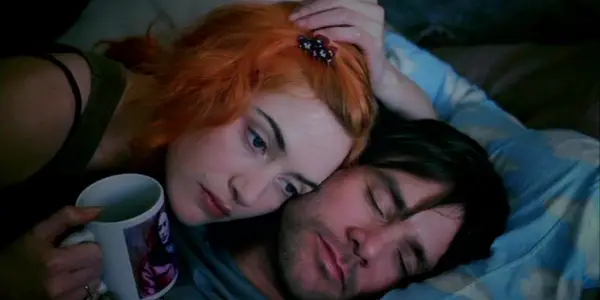
In fact, this is the very basis for the film itself. Clementine is impulsive and interesting, sure, but she is also vindictive, rude, and careless. Her brash nature coupled with Joel’s meekness is something they have to constantly reconcile. They hurt each other, as they are both very flawed and, thus, very human.
But, as they work through their issues and grow through the film, Clementine blatantly informs Joel of her various personality setbacks and he reciprocates. He was never interested in her as a concept, the way she claims many guys in her past have, and he learns of her authentic reality time and time again.
Where Are We Now?
Rabin has, in recent years, expressed his dislike with the Manic Pixie Dream Girl trope. He more than acknowledges how out-of-control it has become, being utilized as a misogynistic tool against well-written female characters, used to write off their intricacies as a ploy at perfection.
In reality, women cannot be subjected to such tropic treatment. The list of characters who adhere to this trope is not strictly confined to women, and it is a much shorter list than construed. In fact, the sooner we allow ourselves to let go of this concept (and, with it, the fear of adhering to it), the sooner we can allow our writing to grow, unbounded by tired stereotypes.
What characters do you think have been unfairly pigeon-holed as Manic Pixie Dream Girls? Tell us in the comments below!
Does content like this matter to you?
Become a Member and support film journalism. Unlock access to all of Film Inquiry`s great articles. Join a community of like-minded readers who are passionate about cinema - get access to our private members Network, give back to independent filmmakers, and more.
Lee is a filmmaker and writer, currently juggling university and their own projects.













